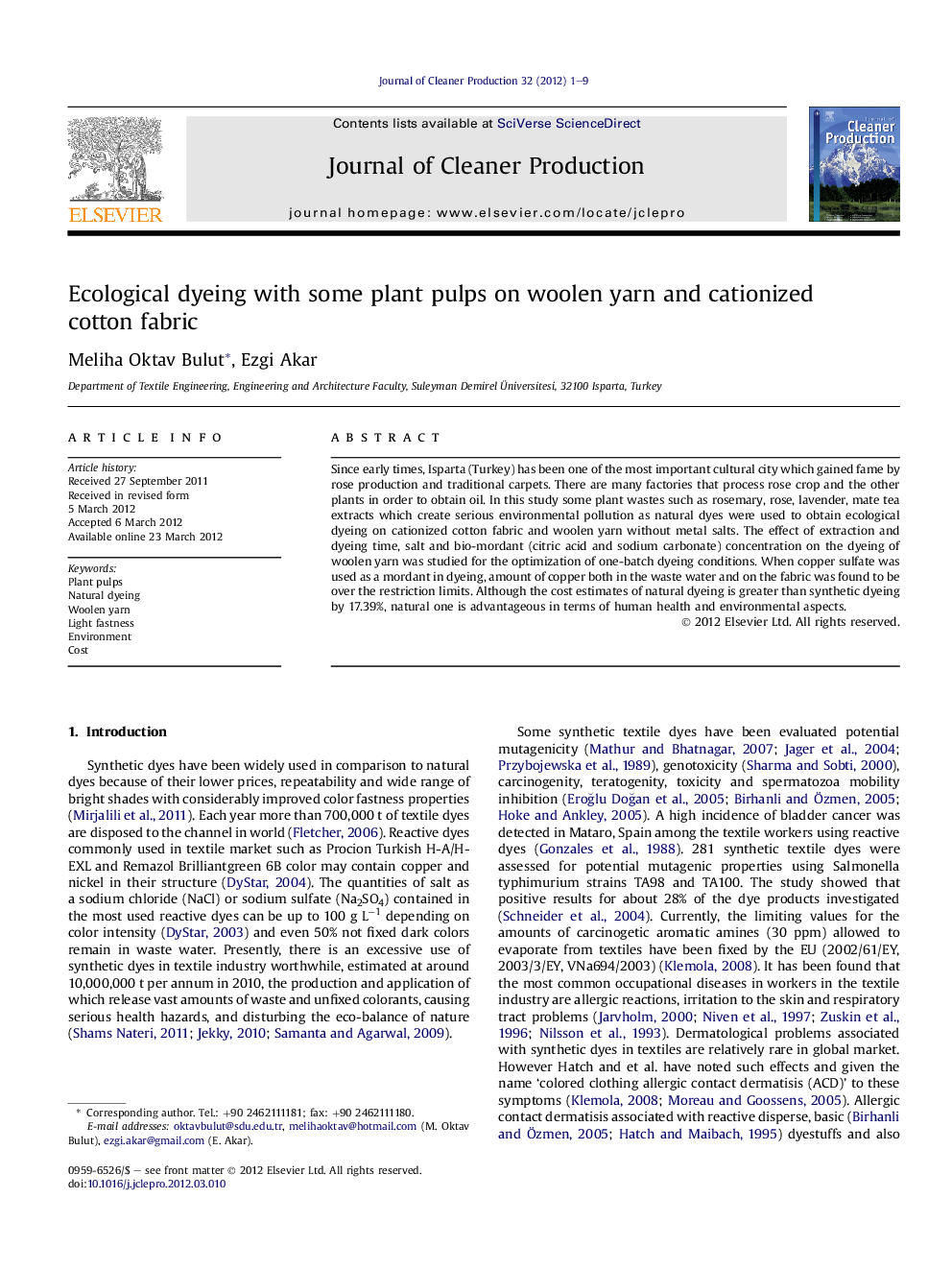| Article ID | Journal | Published Year | Pages | File Type |
|---|---|---|---|---|
| 8108124 | Journal of Cleaner Production | 2012 | 9 Pages |
Abstract
Since early times, Isparta (Turkey) has been one of the most important cultural city which gained fame by rose production and traditional carpets. There are many factories that process rose crop and the other plants in order to obtain oil. In this study some plant wastes such as rosemary, rose, lavender, mate tea extracts which create serious environmental pollution as natural dyes were used to obtain ecological dyeing on cationized cotton fabric and woolen yarn without metal salts. The effect of extraction and dyeing time, salt and bio-mordant (citric acid and sodium carbonate) concentration on the dyeing of woolen yarn was studied for the optimization of one-batch dyeing conditions. When copper sulfate was used as a mordant in dyeing, amount of copper both in the waste water and on the fabric was found to be over the restriction limits. Although the cost estimates of natural dyeing is greater than synthetic dyeing by 17.39%, natural one is advantageous in terms of human health and environmental aspects.
Related Topics
Physical Sciences and Engineering
Energy
Renewable Energy, Sustainability and the Environment
Authors
Meliha Oktav Bulut, Ezgi Akar,
